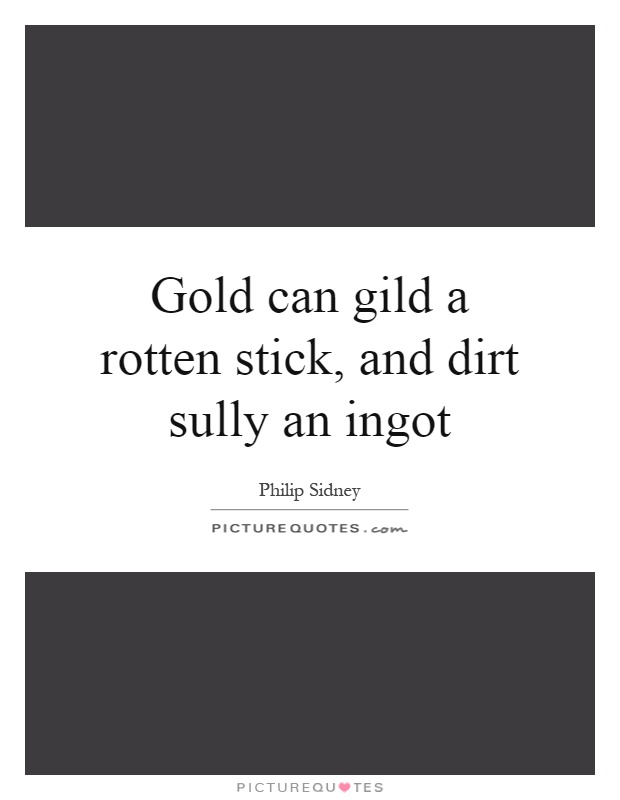Gold can gild a rotten stick, and dirt sully an ingot

Gold can gild a rotten stick, and dirt sully an ingot
The quote "Gold can gild a rotten stick, and dirt sully an ingot" holds a profound meaning in the context of Philip Sidney's works and beliefs. Sidney was a prominent figure in the Elizabethan era, known for his contributions to literature, poetry, and philosophy. He was a staunch advocate of the virtues of truth, beauty, and honor, and his writings often reflected his ideals of moral integrity and ethical conduct.In his famous work, "The Defence of Poesy," Sidney extolled the power of poetry and literature to elevate the human spirit and inspire noble thoughts and actions. He believed that art had the ability to transform base materials into objects of beauty and value, much like how gold could gild a rotten stick. Just as a skilled craftsman could turn a worthless piece of wood into a precious work of art by overlaying it with gold, so too could a talented poet or writer elevate mundane subjects into something of lasting significance and beauty.
However, Sidney also recognized the potential for corruption and degradation in the pursuit of wealth and material gain. The quote "dirt sully an ingot" serves as a cautionary reminder that even the most valuable and precious things can be tarnished and devalued by greed, dishonesty, and immorality. Just as a pure and flawless ingot of gold can be marred by the presence of dirt and impurities, so too can a person's character and reputation be sullied by unethical behavior and moral compromise.












 Friendship Quotes
Friendship Quotes Love Quotes
Love Quotes Life Quotes
Life Quotes Funny Quotes
Funny Quotes Motivational Quotes
Motivational Quotes Inspirational Quotes
Inspirational Quotes